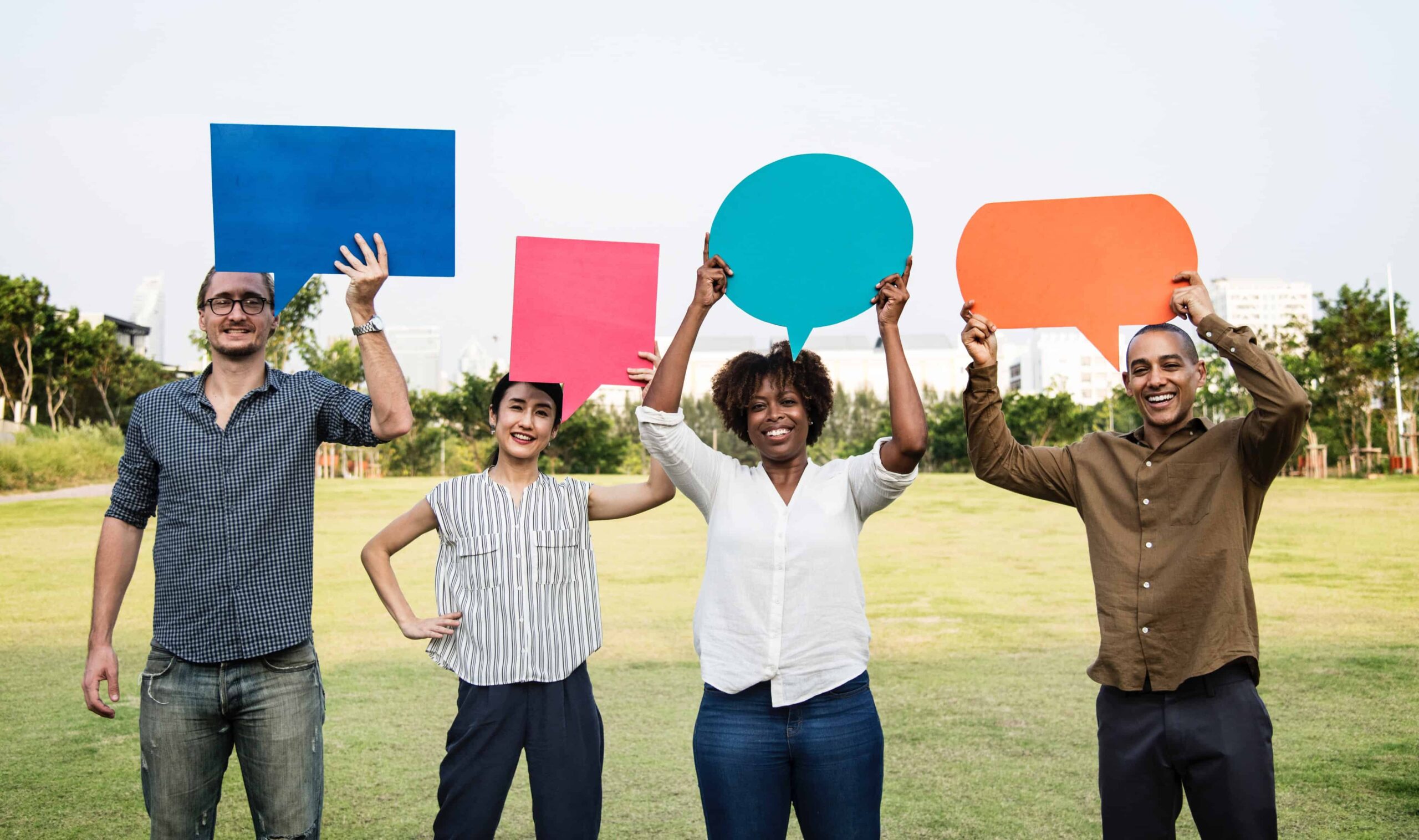The word “negotiation” usually connects to sales talks, to making the most out of a situation, and perhaps to the fear of being intimidated by the other party. That’s what I’ve learnt while conducting classes with customers from various businesses. Yes, people usually get easily terrified with the n-word. But they shouldn’t be! While watching the first episode of the new craze – BBC’s Bodyguard, I realized that we’ve got it all wrong, and that negotiating happens much more often than behind the glass walls of the conference room. Continue reading “What Can Bodyguard Teach Us About Negotiation?”
Month: December 2018
Texting. How to avoid brain damage?
Texting is a no-brainer for sure. Easy, swift, and intuitive. However, does it really facilitate anything?
We still learn English. Why?
We have learnt it, we have used it, and learnt some more. We have improved and continue to improve. Always working on it. Is there ever going to be an end to it? Continue reading “We still learn English. Why?”
We listen. How to be better at it?
Listening is not the first thing that comes to people’s minds when they discuss communication skills. Everyone is focused on their power words, on how to be a great business speaker and how to lure potential customers with slogans and adverts. Continue reading “We listen. How to be better at it?”
How to ask questions?
“What does the fox say?” is a dilemma most fur owners have no answer to.
“To be or not to be?” is always an exciting choice, whether you are a Danish prince or not.
“How to lose a guy in 10 days?” has served me a lot of perfectly effective tips.
“How now, brown cow?”, unbelievably, is repeated in the English Institute at least 100 times a day.
“How to look good naked?” might need a pretty, if censorable, illustration.
We ask questions all the time. Politicians ask questions, scientists ask questions, students and teachers, too. For some reason, though, it seems that we hardly know how to do that properly. We are strangely anxious when asking – as if it showed our weakness or knowledge deficits. Well, it perhaps does. My grandma always says: “One must live and learn… but still dies a stupid one”. Still, there’s no choice. If you are brave enough, and you ask questions, you will surely make mistakes. Over the period of the next few weeks, I would like to explain how to avoid trouble with questions and how to make them your best effective tool.
What can you do to ask questions properly, then?
First of all, empathize with the addressee.
Questions are always part of a power game. They are both about the one who asks and about the one who answers. Pick any political talk-show and think of how belligerent the participants tend to get just because a question leads towards a wrong subject. Why? Are they in real trouble? Does an evil spirit take over? Or do they, perhaps, have no idea what to say? The reason is simpler than that: responsibility. Whether the theme of the conversation is clearly related to the recipients or not, they always bear responsibility for delivering a response. It’s on them. Think of how much of a burden that might be. How stressful, how pressurizing it can get not to have an answer ready! Or to misunderstand the context the question is asked in.
A skilled conversationalist has been on the other side and will know that a good question facilitates communication. A good question builds on the recipient’s strengths, it gives her a hand and opens new channels for thought. It empowers and encourages an answer, rather than enforces a ready hypothesis.
Do you know any effective prompts that could help you win this power game? Sobel and Panas in their Powerful Questionssuggest that “Can you tell me more?” is your best choice when a strong vivid talk is needed. “It is to conversations what fresh-baked bread with soft creamery butter is to a meal”, they claim. Surprised? I’ve told you it was going to be simple. Plus, there are at least 3 reasons to appreciate this superb question.
- It manifests our interest, shows enthusiasm and allows speakers to feel unique, important and encouraged. By investing in their trust and self-appreciation, we invest in our promising relationship. Return on this investment is not only emotional, but also communicative: feeling encouraged, they will drop inhibitions and will surely say more.
- It gives us time– to obtain more input, to settle in the context, to observe the speaker, to check how detailed they are with their answers, how they react to our focus. And, finally, it gives us time to prepare a response. And it takes a bit to prepare these cannons, doesn’t it?
- It encourages profundityby suggesting there’s more to the subject than meets the eye. This is a real winner: insight, observation, and insistent focus on value encourage trust more than anything else does. In our language trainings, asking “Can you tell me more?” is also a practical way of building language muscle – by focusing lesson time on the student rather than on the teacher.
Sobel and Panas provide an extensive list of questions that boost the empathy effect in a similar way:
- Tell me, how are you?
- Can you say more about that? What’s going on?
- What do you mean when you say you’re feeling…?
- Why do you think that happened?
- How did you feel about that? […]
- Do you feel that was the right thing to do? Or, do you think that was the right response?
- It seems like there are really two different issues going on here, is that right? It seems like you feel stuck between a rock and a hard place… Is that right?
- What are you thinking of doing? What do you think your options are?
- I had a very similar experience. Can I share with you?
- Is there anything I can do that would be helpful?”
Source: Sobel A., Panas J., Powerful Questions, 2012, p. 192–193.
Of course, you can use some other convo phrases starting with Wh- (When? What? How? Why?). If you develop a good repertoire of such questions, you can make yourself a proper communication ninja – remaining in the shadows, perfectly attentive, and managing the power game skilfully, ready to act when needed. If after talking to you somebody feels the smartest person in the whole universe, you can be sure that your mission was a success – that you have effectively empathized and have built trust.
How do you like that? Want some more? In further articles, I will address the following crazy questions about questions:
- How do use open-ended questions?
- How to cause thinking rather than answering?
- How to really want answers?
- To cause thinking rather than answers.
- How to use proper intonation?
At Language Extreme, we waste no words. Do we love communication? What a question!
Text by Monika Szczepańska, English Language Teacher at Language Extreme
We misunderstand. Why?
If we’re just souls whose intentions are good, why do we so often fail at getting our message across? Reasons for miscommunication vary from interaction to interaction, from culture to culture, and from person to person. Still, bearing the abundance of causes in mind, I’d like to briefly discuss four that are closest to my experience.
We misunderstand because we want to be right.
We often enter conversations equipped with prejudice, bias and our lovely misconceptions. Opening to a genuine interaction often means changing our mind about the subject of our talk or – whether you want it or not – about our interlocutor. It often hurts to admit we are wrong. Nobody likes that, so just to be on the safe side, we try to align our interpretations with some already existing beliefs. In other words, we anticipate confirmation rather than curiously open up to honest communication. This only worsens when stakes are high and the topic is sensitive. Think of how politicians discuss in TV shows these days.
We misunderstand because we assume sameness of experience.
Against social logic, we tend to presume that all people come from similar cultural and religious backgrounds, have the same sensitivity, reason just like us and generally should be our copies. Spoiler alert: They are not! They should not! Sometimes it pays off to spend a while customizing the message to the needs of our audience or say something twice rather than cut the long story short just to tick a task off.
We misunderstand because we put too much trust in deictic expressions.
Me and my colleague were exchanging emails with some attachment that needed corrections. At some point Gosia asked: “Is it ok now?”. I introduced some changes and replied: „Now it should be ok”. For her, however, NOW referred to the time from before my corrections and she sent forward the unfinished version. My bad of course! This situation taught me to be careful with words like now, there, that, etc. It’s sometimes safer to specify how recent the nowis and write „See the file after my corrections” rather than „See the file now”.
All of us should learn it. My mum often comes over to share news: “Do you remember that guy who’s married the blonde who dropped out of your school in 1997? He died last week”. Not exactly clear, is it?
We misunderstand because we are lazy.
„Could you explain this?”, “Unclear!”, “Don’t know what you mean”, “?????”, “WTF?” or the onomatopoeic „Huh?”. You’ve seen these, haven’t you? When messages are unclear, we grow concise and passive. Our partners may not know which part of the message we find obscure and how she could elaborate on it so that we grasp the meaning. We pass the buck rather than clarify anything. Instead, we could make a positive effort. Unclear? Should I explain? It’s simple: what we need is sharper focus, clearer detail, and concrete logic. Asking specific questions saves time and reduces risk (of yet another unproductive email, yet another futile call).
While we can’t avoid misunderstandings, I strongly believe we can reduce their number. If we state details explicitly, listen carefully, demonstrate empathy and stop believing in the infallibility of our own ideas, we should enjoy a noticeable change. What do you think? Shall we try and improve a tiny bit?
At Language Extreme we have misunderstood a lot. Enough to start thinking harder and getting better.
We communicate. Why?
In a commentary for CNN, Zachary Wolf once diagnosed a contemporary discomfort: “This is what makes covering Donald Trump so very difficult: What does he mean when he says words?”. Continue reading “We communicate. Why?”






